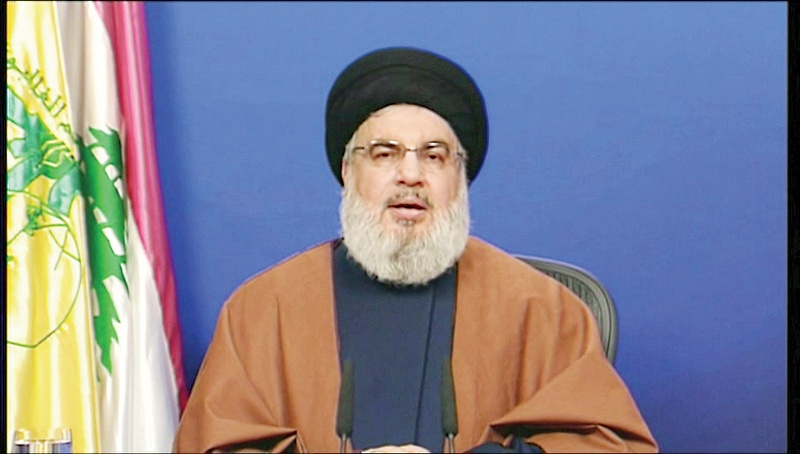BEIRUT: The head of Shiite movement Hezbollah in protest-wracked Lebanon Friday warned that the formation of a new cabinet desperately needed to redress a tumbling economy could take time. Lebanon has been swept by unprecedented nationwide protests since October 17, demanding the complete overhaul of a political class deemed inept and corrupt. The government stepped down on October 29, but bitterly divided political parties have failed to agree on a new premier ever since.
Hezbollah chief Hassan Nasrallah spoke ahead of parliamentary consultations to nominate a new prime minister tomorrow. "The consultations are supposed to take place on Monday and we hope that whoever receives most votes will be designated to form a government," he said in a televised address. "But the formation will be no easy feat," he warned.
In a multi-confessional country often in political deadlock, the name of the new prime minister is frequently picked before symbolic parliamentary consultations. "Until now the parliamentary blocs have not agreed on a name" for the new premier, Nasrallah said. He said it was likely each bloc would "name who it wanted without any prior agreements."
The protesters have demanded a government made up solely of experts not affiliated to the country's traditional political parties, but analysts have warned this could be a tall order. Nasrallah said he would support a "government of national partnership", and one with "the widest possible representation" that did not exclude any of the major parties.
He said it could be headed by outgoing premier Saad Hariri or someone the outgoing premier designated. The names of various potential candidates have been circulated in recent weeks, but the Sunni Muslim establishment on Sunday threw their support behind Hariri returning.
More US sanctions
The international community has urged for swift cabinet formation to implement key economic reforms and unlock international aid. The World Bank estimates a third of Lebanese live in poverty and this could rise to half. It has projected a recession of at least 0.2 percent for 2019.
A sworn enemy of neighboring Israel, Hezbollah is the only faction not to have disarmed after Lebanon's 1975-1990 civil war. The United States considers Hezbollah a "terrorist" organization, but the movement is also a key political player with ministers in the outgoing government and seats in parliament. The United States has targeted the Shiite party with tough sanctions, ramped up under the administration of President Donald Trump.

Nasrallah lambasted comments by US officials, including Secretary of State Mike Pompeo who Wednesday said the Lebanese were aware of the "risk" of Hezbollah being in their country. Nasrallah suggested the United States might be "blackmailing" the Lebanese, and only offering to help in a time of economic crisis if they first dealt with that "danger." He alleged the United States had been unable to neutralize the movement despite actions including "sanctions."
On Friday, the US Treasury Department imposed new sanctions against two alleged Hezbollah money launderers and financiers, including a diamond trader who collected art. It accused Lebanon-based Nazem Said Ahmad, whose art collection includes works by Pablo Picasso and Andy Warhol, and his companies of helping to launder large sums of money for the group.
"Ahmad, who has a vast art collection, is one of Hezbollah's top donors, generating funds through his longstanding ties to the 'blood diamond' trade," it said. A second man based in the Democratic Republic of Congo, Saleh Assi, was sanctioned for laundering money through Ahmad's diamond business and supporting another alleged financier already under sanctions. - AFP










